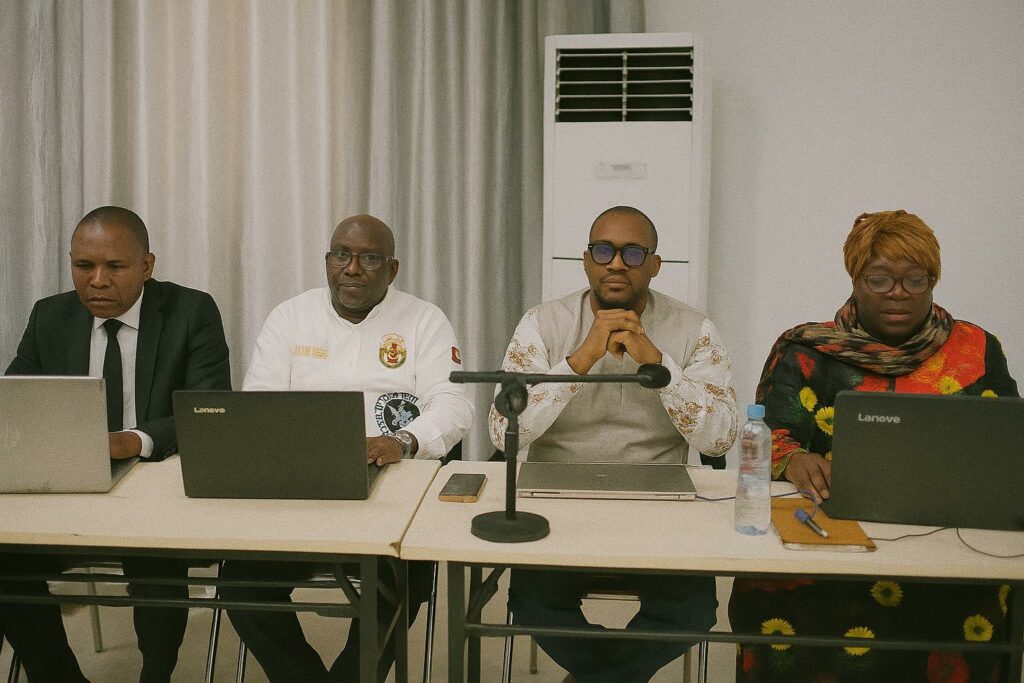A Curious Dawn for Customary Tenure in Central Africa
When officials in Brazzaville convened civil-society actors and forest dwellers at the close of June, sceptics were quick to recall decades of stalled land reform across the Congo Basin. Yet the new draft decree on safeguarding Indigenous customary tenure, discussed behind the ochre walls of the capital’s diplomatic district, suggests a moment of rare political receptivity. The Congolese government touts its 2011 law on Indigenous peoples as the first of its kind in Africa, but the enabling regulations—those that decide how a right is exercised at the forest edge—have long remained elusive. As the UN Special Rapporteur on the Rights of Indigenous Peoples warned in 2019, legal recognition without practical instruments risks amounting to “symbolic constitutionalism” (UNHRC 2019).
Inside the Brazzaville Workshop: Drafting under the Watchful Eye of Civil Society
The June workshop, co-hosted by the Congolese Observatory for Human Rights (OCDH) and the UK-based Forest Peoples Programme, aimed to translate broad constitutional promises into field-tested clauses. Nina Cynthia Kiyindou Yombo, OCDH’s executive director, stressed that “the decree must be anchored in local realities while meeting international thresholds”—a nod to ILO Convention 169 and the UN Declaration on the Rights of Indigenous Peoples.
Participants disassembled the 32-article draft line by line, inserting language on gender-sensitive access to land, grievance mechanisms, and the principle of free, prior and informed consent. Field data from Lékoumou and Sangha, collected through GPS mapping of forest groves and fishing camps, underpinned community claims. International observers from the Food and Agriculture Organization underscored that only 10 percent of Central Africa’s forest estate is formally wp-signup.phped to communities (FAO 2023), cautioning that vague demarcation could perpetuate conflict between mining concessions and shifting cultivators.
Indigenous Voices Demand More than Consultation
Beyond legal prose, the atmosphere was charged with first-hand testimony. Ngombé elder Paul-André Mokondzi recalled a 2021 incident in which his clan’s raffia stand was levelled for a logging road without compensation. “We no longer accept promises heard only in the capital,” he said, prompting applause that briefly disrupted the translator’s cadence. His words reflected a broader critique that participatory workshops often end in reports rather than restitution.
Still, the presence of community delegates at the drafting table marks an incremental departure from earlier top-down processes. A 2022 World Bank policy note concluded that robust Indigenous engagement tends to lower the transaction costs of land registration by curbing litigation (World Bank 2022). Whether Brazzaville will internalise that economic incentive remains to be seen.
Regional Reverberations and the Contested Badge of African First-Mover
Congo’s officials relish the narrative of a vanguard state. They have highlighted Kinshasa’s recent parliamentary bill on Indigenous peoples as evidence that the “Congo model” is spreading west of the Rift. Yet analysts in Yaoundé and Libreville privately question the exportability of an approach still untested on the ground. The Central African Forest Initiative, channeling European climate finance into the region, requires verifiable tenure security before disbursing performance payments—an implicit pressure point that may accelerate the decree’s adoption.
Neighboring governments will watch the regulatory detail closely. If the decree sets low thresholds for proof of ancestral occupation, it could embolden claimants from transboundary forest groups such as the Baka and BaAka, challenging concession regimes carved out during the colonial era. Conversely, an onerous evidentiary burden might stifle uptake and allow Brazzaville to celebrate reform while maintaining the status quo.
Fiscal Realities and the Long Road from Paper to Practice
Even the most progressive language falters without a fiscal spine. The Ministry of Finance has yet to earmark funds for the cadastral surveys that the decree contemplates. According to the African Land Policy Initiative, mapping one hectare in remote swamp forest costs roughly USD 22, excluding litigation (ALPI 2022). With an estimated six million hectares subject to customary claims, the arithmetic is sobering.
International partners hint at blended finance models, pairing climate funds with social-impact bonds. Yet sovereign ownership of the process is non-negotiable for Indigenous leaders wary of external conditionalities. As Lassana Condé of the Forest Peoples Programme observed, “The credibility test will be the first land certificate delivered to a community without a foreign consultant in the room.”
A Precarious Turning Point
The Brazzaville consultation offers a microcosm of the wider struggle over forest governance in Central Africa—a collision of climate diplomacy, extractive appetites and ancestral stewardship. The draft decree may neither inaugurate a golden age of Indigenous autonomy nor wither into bureaucratic theatre. Its fate will hinge on the willingness of Congo’s legislature to enshrine participatory zoning, of provincial officials to resist rent-seeking, and of donors to finance without commandeering.
For now, community delegates return to the forest with annotated copies of a legal text that, though unfinished, bears their fingerprints. In the words of elder Mokondzi, “We carry home a promise written in ink; we shall judge it by the footprints it leaves on our soil.”

